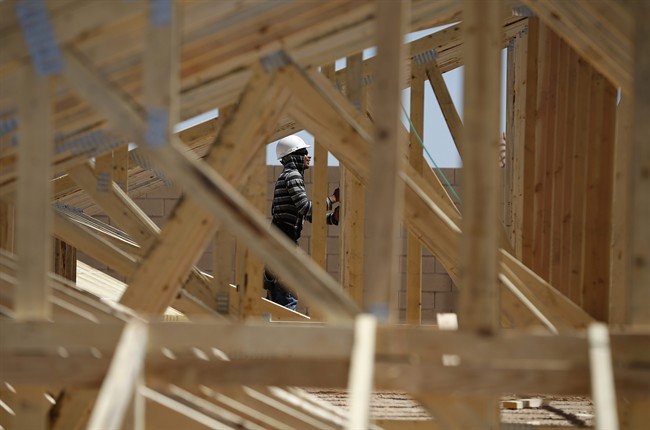The head of the group representing homebuilders in Saskatoon says despite upcoming changes to the mortgage stress test, millennials still struggle to afford a house.

Chris Guérette said while the change might allow another 500 people in Saskatoon to get into the market, it doesn’t go far enough to help millennials.
“We have a younger population. What that means for the housing market is that’s the group in our population that’s the most active that wants to get into the housing market,” said Guérette, who is the CEO of the Saskatoon & Region Home Builders Association (SRHBA).
“Four out of five millennials say they want to buy a house in the near future. So when we’re impacting how you can get to that dream, it means it’s impacting Saskatchewan disproportionately.”
The new mortgage stress test, which goes into effect April 6, looks at the previous week’s mortgage insurance applications from across the country, taking the median five-year fixed rate and adds two percentage points.
The current test looks at the Bank of Canada’s five-year posted rate — which is determined by rates from the country’s six largest banks.
While happy with the change, Guérette said it needs to be tweaked to take into account local realities to bring more people, including millennials, into the market.
“We know of many different policies federally that have that local flavour — look at unemployment insurance that absolutely needs to have that local flavour to work.”

Get breaking National news
“Housing is no different than that. So, yes, market realities need to have local realities.”
It’s an approach a local Saskatoon real estate broker would like to have brought in.
Royal LePage’s Norm Fisher noted the stress test initially was set up in 2016 to counter concerns following an increase in prices for homes in Toronto and Vancouver.
He, too, would like to see Ottawa take a regional approach.
“If we were looking at something that took regional differences into account and the difference was one per cent, it would be far more substantial,” Fisher told Global News earlier this month.
“We’d be talking $40,000 worth of additional buying power,” he said.

Guérette said this change would bring more people into a market that is affordable.
“We still have a relatively affordable market here in Saskatoon. When we compare to the rest of the country, we still have a lot of choice of housing, a lot of price points,” Guérette said.
“It’s a really good time to buy right now.”
The Saskatchewan Realtors’ Association said the bench price for a home in Saskatoon in January was $286,500, and condo-style apartments averaged $166,600.
Another policy Guérette would like to see changed is the PST (provincial sales tax) on home construction.
Guérette wants it axed and said she continues to talk with the province on ways to lessen the impact of PST on home construction.
“Finding a residential construction solution to PST has been on our radar for the past three years,” Guérette said.
“We’ve been working very hard in trying to come up with solutions that would assist construction, because at the end of the day, it’s growth, it’s employment.”
As for the new housing market, Guérette said it’s too early to know if it will bounce back in 2020 after a challenging 2019.
“When we took a look at our permit report we did not see that bounce yet,” she said.
Inventories of unsold new homes have consistently declined over the last four years as the economy softened, the Canada Mortgage and Housing Corporation (CMHC) reported last week.
CMHC added housing market vulnerabilities due to overbuilding has diminished sufficiently due to a lowering of completed and unsold homes and the purpose-built apartment vacancy rate moving below critical thresholds.







Comments
Want to discuss? Please read our Commenting Policy first.